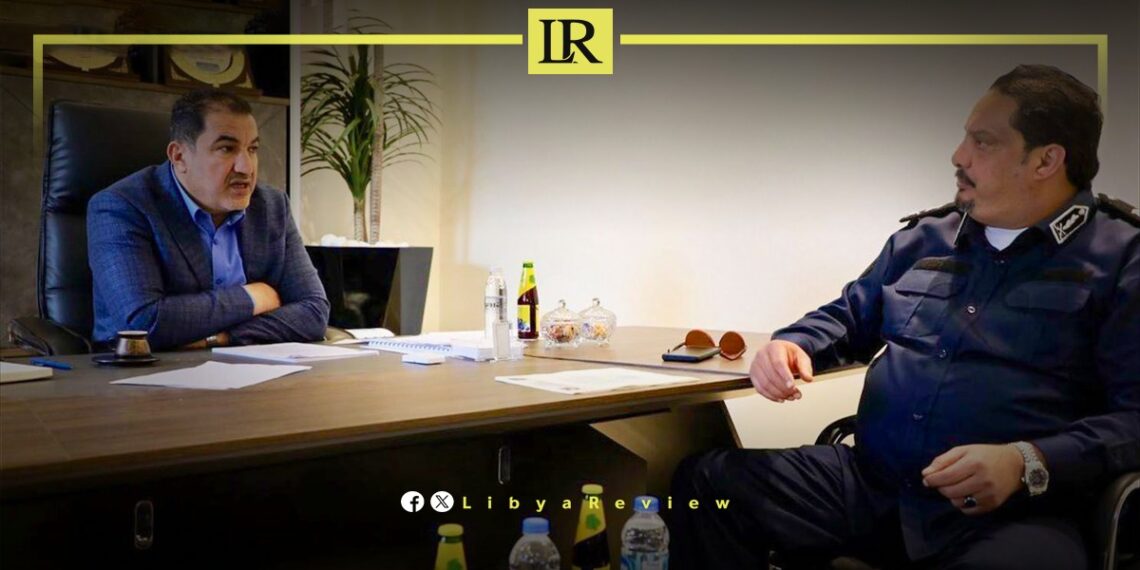In a significant move to bolster border security, Libyan Minister of Interior, Essam Abu Zriba, convened with Salah Al-Khafifi, the Director of the General Administration of Desert Patrols, in his office in Benghazi.
The meeting, held on Wednesday, aimed to address the pressing needs and requirements of the Desert Patrols Administration, emphasizing the provision of necessary resources to ensure the personnel can effectively fulfill their duties, thereby achieving security and stability.
The Government of Libya’s Security Media Office highlighted that the discussions also covered the Administration’s role in securing desert and border areas, combating illegal immigration, and preventing smuggling to maintain public peace.
Furthermore, the meeting delved into the latest preparations for inaugurating a new branch of the General Administration of Desert Patrols in the city of Tobruk, with affirmations of the readiness of the premises before commencing operations.
Minister Abu Zriba underscored the critical role played by the General Administration of Desert Patrols in border regions and stressed the importance of meeting all necessary needs to enable the Administration to carry out its functions effectively. This initiative marks a pivotal step in Libya’s efforts to enhance its border security amidst challenges posed by illegal migration and smuggling activities.
Libya has been in chaos since a NATO-backed uprising toppled longtime leader Muammar Gaddafi in 2011. The country has for years been split between rival administrations.
Libya’s economy, heavily reliant on oil, has suffered due to the ongoing conflict. The instability has led to fluctuations in oil production and prices, impacting the global oil market and Libya’s economy.
The conflict has led to a significant humanitarian crisis in Libya, with thousands of people killed and many more displaced. Migrants and refugees using Libya as a transit point to Europe have also faced dire conditions.
The planned elections for December 2021 were delayed due to disagreements over election laws and the eligibility of certain candidates. This delay has raised concerns about the feasibility of a peaceful political transition.
Despite the ceasefire, security remains a significant concern with sporadic fighting and the presence of mercenaries and foreign fighters. The unification of the military and the removal of foreign forces are crucial challenges.


